With the new year just around the corner, many people think about starting a journal. Of course, you don’t have to wait for January 1st, it is just a popular time.
The great thing is, there are many benefits of journaling. So if you’re thinking about giving it a try, I’ve got some ideas for many different types of journals you could consider keeping, so you can find what works best for you!
It’s important to note that you don’t have to choose one type of journaling. Your journal can include many different ideas in one notebook, or you can use separate journals. There is also no requirement on the journal entry style, you can free write or use a template; or a mix of both. Remember, it is your personal journal and you choose what works for you.
Different types of journals to keep
Time capsule
This is a record of events that are important to you, for instance news or sports stories. You could simply keep newspaper cuttings or you could add your thoughts and comments on the headlines. I kept one of these at school which covers the first Iraq war and my sister kept one of the 1984 Los Angeles Olympics. It does not need to be national events, it could be more local events, for instance connected to your local town, school or sports club, or just capturing your thoughts at one moment in time*.
Time Capsule
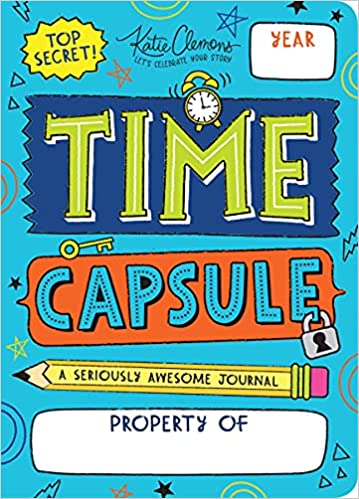
Specific topic e.g. food journal, productivity journal, health journal
You may want to follow your progress on a specific topic, such as your exercise* , children* or career*. You may find it useful to start these entries using a template, so you can easily track progress over the year, such as exercise undertaken, weight. These journals do not need to be limited to one topic, for instance Ira Progoff* encourages writing on different topics and filing each topic within different sections in a folder rather than chronologically.
Dream Journal
Writing down your dreams should be done every morning as soon as you wake up to capture as many details as possible, the longer you leave it after waking the fewer details you can remember. You could just capture the dreams or you may want to analyse them using a dream dictionary* , or just looking at the imagery yourself and suggesting meanings; it is often easier to do this a few days after having the dream. It is good to give each dream a title and keep an index of them so you can review them later, perhaps monthly, and notice any patterns.
Travel journal
Travel journaling means after the holiday you have more than just photographs as a record. It is good to keep specific details of where you have stayed and where you have gone, for instance instead of saying we went to the beach say which beach, so at a later date you can recreate the holiday or can make recommendations to friends. It is great to use a holiday journal in a similar way to a scrapbook, sticking in additional information such as postcards, brochures and tickets of where you have been. A travel journal can be particularly nice if you are going on a special holiday, e.g. honeymoon, you do not travel very often or if you are expecting to learn a lot while travelling such as on a gap year.
Many people are now keeping blogs when they travel as a way of sharing their experiences with their friends and family, but they are still a journal as they keep a record of what you see and do.
I Was Here Journal
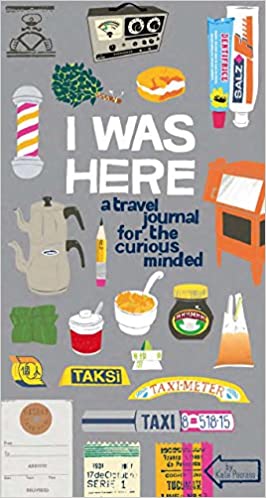
Reading journal
For people who like reading it can be useful to keep track of what you’ve read and want to read. It may be worth considering buying a preprinted book* although it is easy to create your own. A reading journal enables you keep to a record of all aspects of your reading, such as the books in your inventory, the books you want to buy, which books you’ve read and what you thought of them. You can do a lot of this online these days with websites such as Goodreads and Librarything and you can keep a log of the books you read or your reviews online.
Specific time frame
Something unusual may be happening that you want to keep a record of, for instance you are pregnant*, planning your wedding*, building your own house*. These are things that are not part of your usual life and that you may want to look back on in the future. You could keep a simple journal of photographs and lists, or you could also write about your thoughts and experiences as you experience the changes, perhaps in the style of a letter. Corrie Haffly has a very good example of a pregnancy journal.
Gratitude journal
Sometimes it is so easy to get caught up with the little things in our lives that we forget all the good things. A gratitude or happiness journal helps to focus your thoughts on the what is good in your life. There are many different forms this could take, for instance, a small notebook that you carry with you and write an entry whenever you realise you are grateful for something, or a list of 10 things you were grateful for during the day. By focusing on the happy things your mind starts to focus more on the positive and less on the negative so you start to appreciate even more things you are grateful for.
Read my post Writing a Gratitude Journal
Group or family journal
It could be fun and eye opening to keep a group journal*. This could be done by all members of the group writing an entry about their day or their thoughts on the same topic. Alternatively, each member of the group could hold the journal for a specific time frame, such as a week, and then pass it on to the next person. Another idea is to keep a birthday journal where you write on each person’s birthday keeping a record of what you did and the presents they recieved. This is a great way to learn and understand people better while building closer relationships, as individuals start to appreciate both the differences and similarities within the group.
Personal development
A journal can be a good method of identifying where you can improve your life and then monitoring progress*. For instance, I originally did the Wheel of Life exercise in my journal and find it a great visual way of tracking my progress. However, there are plenty of personal development exercises to get you thinking, some of my favourites are to list all the things I am resisting at the moment and to write a list of 25 things I wish for; both enable me to review where I want to focus my energy in the coming weeks.
Project journal
If you are working on a project where you are trying different methods or are continually learning you may want to keep a journal to capture all the information. This is common practice in laboratories to keep a record of the different combination of chemicals, but it can also be used for different types of projects. For instance, I could keep a log of each piece of clothing I make, did I learn a new way of adding a zip, did something go wrong that I need to solve in the future, was the material difficult to work with. This way all the information is captured in one place and you do not need to remember it.
Nature or Gardening Journal
This is similar to the project journal above as it is a record of what occurs in the garden*, but it may also include observation of the wildlife* you see, such as birds and this starts incorporating aspects of a nature journal where descriptions and pictures of the nature you see are included. You may record what you’ve been planting and your ideas for the future.
Meditation
It can be good to have a complete break between work and home so you don’t carry the emotions and worries in to the home. Some people do this by exercising or meditating, but using a journal* can also be effective. By writing as soon as you get home you can capture all the thoughts in your mind and remove the work mindset so you can then relax fully into your home life.
Planning Journal
As soon as you wake up in the morning start writing. This will enable you to capture the thoughts in your head, particularly any worries. You could write paragraphs or just a list of every thing you want to do that day, week, month or even year. This can then be reviewed on a regular basis and used to help form plans.
Creativity or art Journaling
A creative journal could just be a collection of ideas, observation, sketches, doodles, magazine clippings and creative writing that could be used to inspire future work such as paintings, stories. Or it could be a process of developing your creativity by completing a course such as The Artist’s Way Workbook*.
Hobby Journal
This could be similar to a project journal where you capture your thoughts about your hobby or hobbies. It could be writing ideas of what you’d like to do in the future, achievements or working through challenges you have. It can be a great way of seeing the progress you’re making on things you enjoy.
Bullet journal
Bullet journaling has become very popular because it is a versatile and customizable organisational system. At its most basic, it is a blank journal that includes elements of planner, to-do list and calendar, enabling you to track what is important to you whether that is tasks, events, ideas or tracking habits. Due to its flexibility, many people decorate their pages so they are inspired to use the journal.
Daily Journal
This type of journal can take any style you want, the key thing is you are doing it every day. Once you know what benefit you want from journaling you can choose the style. For example, you could write in the morning to set up for the day or reviewing successes at the end of the day. You may want to use a template, so you have a similar structure or just free write to clear your mind.
Quick journal
Sometimes the thought of keeping a journal can be exciting, but also daunting. If you are keen to keep a record, don’t let the commitment put you off, Gretchin Ruben keeps a one sentence diary where she aims to write just one sentence each day. But if that seems too much Kathleen Adams in her book Journal to the Self* suggests keeping an adjective journal where at the end of the day you write down one adjective to describe the day and one adjective to describe how you want tomorrow to be. A nice way of doing this is with a calendar journal as it provides limited space to write.
Goals journal
Whether you have career, personal development or fitness goals, writing about them is a great way to keep you focused. You can write about why you want to achieve your goal and tracking the actions you take each day and the success you achieve.
Bucket List Journal
A bucket list is a collection of experiences, goals, or dreams you want to accomplish. It can act as a personal roadmap to find new adventures, pursuing passions, and achieving meaningful milestones. Keeping a bucket list journal can help you work out what really matters to you, keep you motivated and inspired and is a place to record your experience and precious memories so you can reflect on your journey and successes.
Ideas journal
Keeping your ideas in their own dedicated journal can encourage you to capture ideas you want to remember and make it easier for you to review and take action on them.
Bonus type Pandemic journal
There were many unusual times in 2020 and 2021, and you may want to keep a record of what changed and how you felt during these times you may want to keep a pandemic journal. You can still do this now either looking back on what happened or collating how you felt through the methods you used at the time.
Conclusion
My journaling journey has taken me through many of these styles. My current journaling practice is using a template in the evening as part of a gratitude journal, and free writing in the mornings to clear my head. On the weekend, I often use a journal prompt to help me focus on a personal development area. My advice to anyone who wants to start and keep a journal is to not overthink it. There is no right way to start journaling so look through the list and pick an idea that inspires you and start writing. If you decide it is not for you, pick another idea until you find your own style.
What kinds of journals do you keep? Do you have a preferred journal type?
*Disclaimer: This post includes some affiliate links however if you follow them it will not cost you any extra, but I will receive some money from the seller for suggesting you visit them
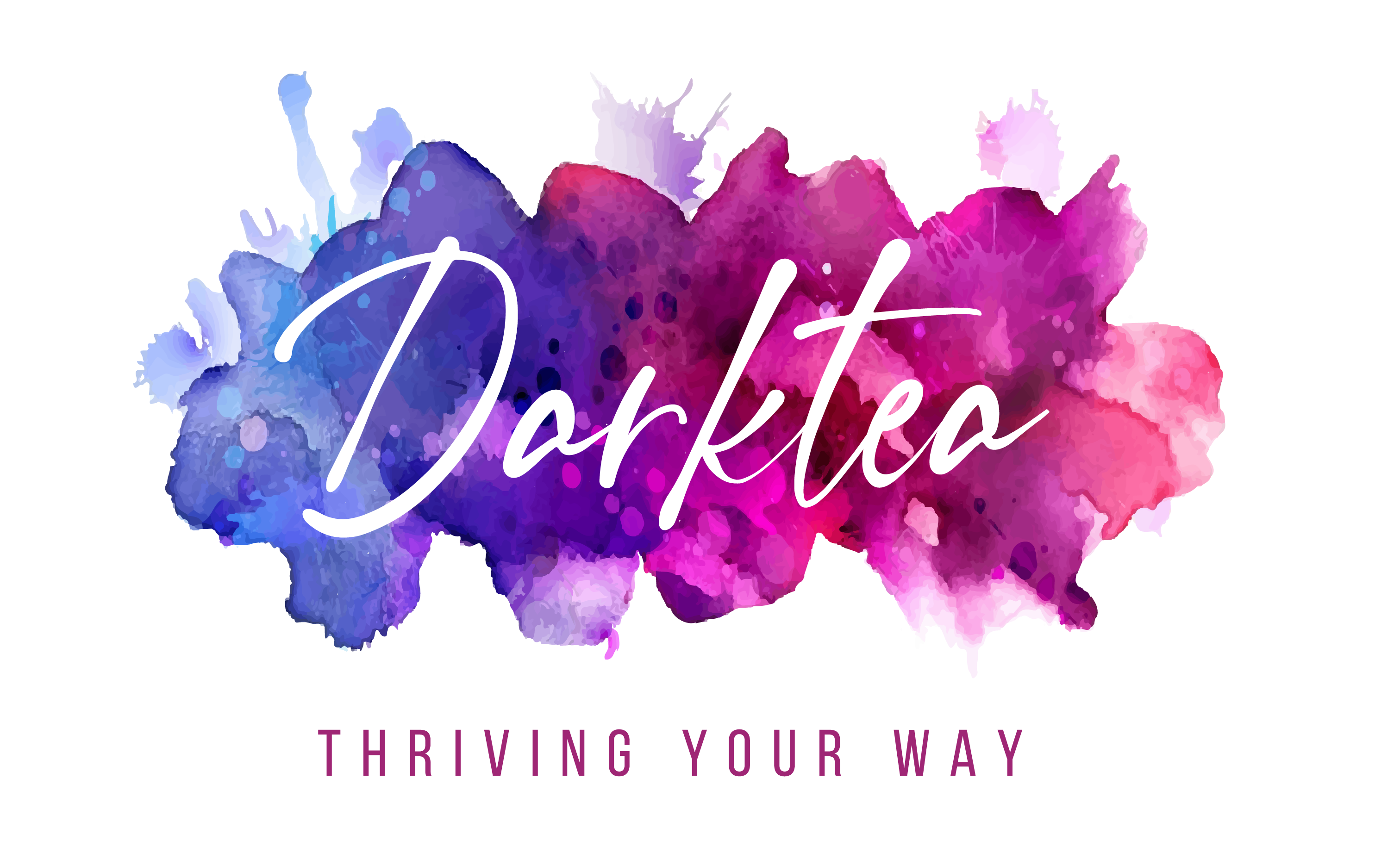

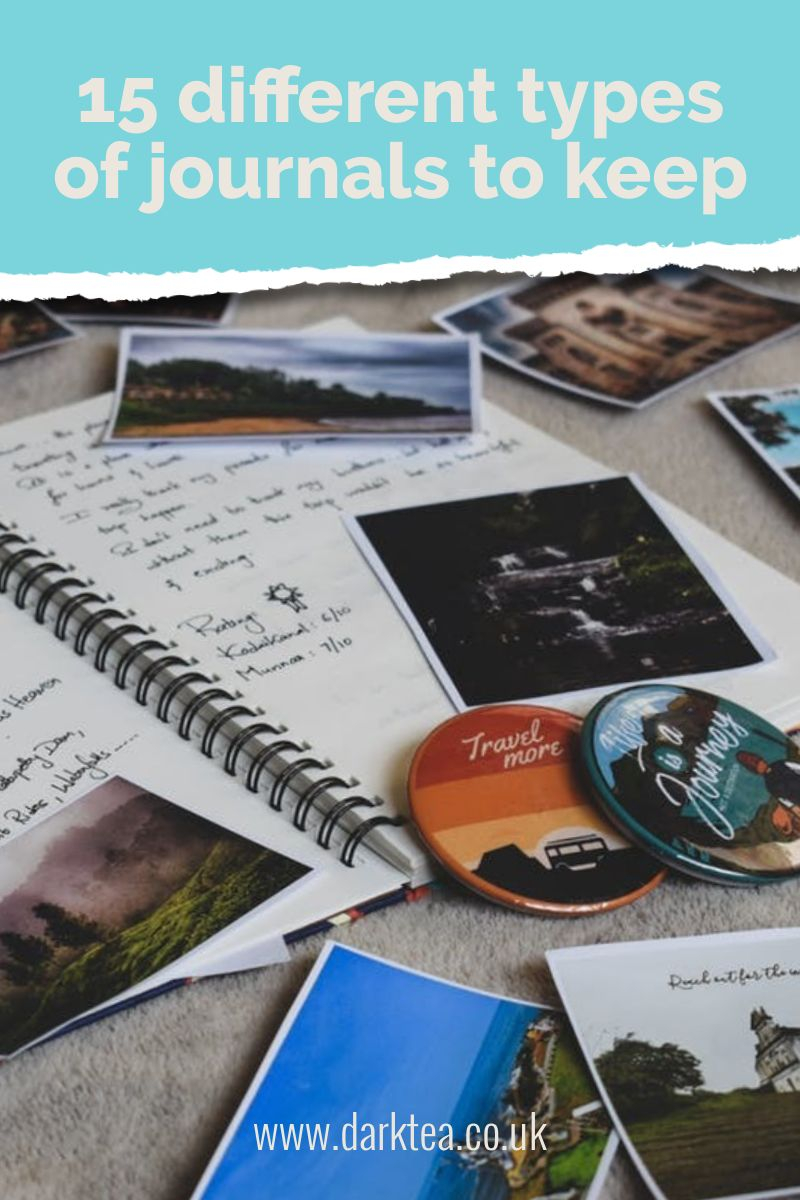
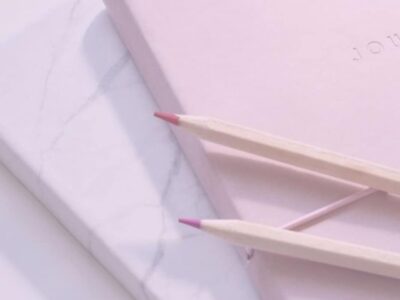


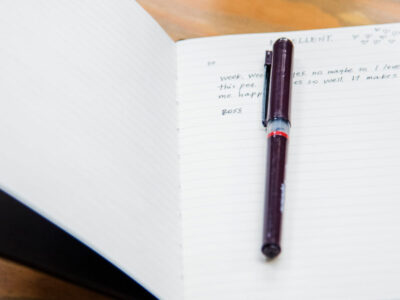

 Using positive journal prompts for a happier life
Using positive journal prompts for a happier life
Hi, I enjoyed the article. I have something to add, but it’s not another type of journal to add to the 15, it’s another way of keeping a journal which is different from a written journal.
I kept a written journal when I was much younger but I stopped because I always found something better to do with my time.
However, when I decided to start again, I my schedule was even more hectic with work family. I decided to keep an audio journal – something that I could phone-in and record using my cell phone while I was driving to work. I figured I could either listen to a book on tape, or create my own life’s book on tape.
I talk about my feelings, and regrets, and what I wish I was doing differently as a parent. I don’t exactly know what I’ll do with the audio CD’s when I get older, but there isn’t anything so embarrassing in there (yet) that I wouldn’t give them a copy.
I thought others might enjoy it so I created a service around <a href=”http://www.LifeOnRecord.com/journals.htm” title=”voice memories” to offer it to others. It’s called
<a href=”http://www.LifeOnRecord.com” title=”LifeOnRecord”
AAE, You are correct that there is no reason that a journal has to be written. It could be visual or as you suggest audio. Personally I prefer to write longhand because I find it helps me think, although I have to admit I have never tried to keep a different type!
I love this. If I could journal all day, I think I would! I personally have a personal development journal and a gratitude journal. They kind of go hand in hand for me… This is great! Thanks for sharing… you have given me some good ideas for the new year… maybe a new journal. Besides.. who can’t resist some of the beautiful journals they have out these days.
Megan,
I know what you mean about beautiful journals, unfortunately there does not tend to be the same choice in the UK as other countries. What I find amusing is when I wanted lined books all the pretty ones were plain pages and now I’m using plain pages all the pretty ones I was looking at yesterday were ruled pages!
I go through phases with my journal, but at times I could also write all day. I don’t have a fixed format for my writing and it seems to vary between very free writing to only using exercises. Do you carry your journals with you during the day or do you only write at home?
I don’t know how much journalling is beneficial for me, but as I keep coming back to it after over 15 years there must be something that draws me in.
I used to keep journal where I write about everything that bothered me. journal becomes sort of like a friend to whom you can say anything. I think it is good to keep one of those, specially if you have stressful job.
The “time capsule” journal is an awesome idea. I came across some old stuff of mine when my parents downsized their house and found a bunch of stuff from high school in the 80’s. It wasn’t intended to be a time capsule journal, but that’s effectively what it turned out to be.
It really brought back some great memories, stuff that I’d long since forgotten. I definitely recommend doing this, especially around any major life milestones.
Duncan, I agree. My mum has recently downsized as well and it was interesting looking through my old books from school.
I never realised there were so many different types of journals, after writing a diary in my early teens, I suppose I now use my parenting blog, Franglaise Mummy, as my kind of journal. I like the sound of one set around a particular event in history like the Iraq war, how interesting.
#blogclub
I’m sure it will be interesting to look back on my Iraq war ones, particularly if my children study the war in history, although it is just newspaper clippings and there are none of my thoughts in it.
I keep several diaries/journals but I thought I was unusual doing this. I have an academic diary for every day work related stuff; a teaching diary; an appointment diary/organiser and several notebooks for meetings, my PhD research, everyday things such as what I need to buy and To Do lists and an organiser. It may sound extreme to some but I feel it helps me function more efficient but my bags weight a tonne when I head off to work with all that lot!
I know what you mean David. I have multiple notebooks; two diaries, one for lists, one for notes and one for blog ideas. I don’t like carrying them all the time so I take a guess at which one to carry each day. It would be easier if I went digital, but there is something about writing by hand that I like.
Is it too late to start a journal?
I’m 17 years old and I find it odd how I only had an interest on journalling now, when I could have started when I was a child and became passionate about it. I’m frustrated how I had so many things I wanted to keep a record of before and I feel like it’s too late to start now.
I’m trying and getting on bits. I have a few notebooks/journals I keep right now, but I find it hard to update them. Maybe one of the factors is the existence of blogging or microblogging sites like tumblr, facebook and twitter. Since I’m a part of the Digital natives, I’m more exposed to these technology and thus limit my writing exercise. What do you think?
No I don’t think it is ever too later to start writing a journal. You could have two, one for writing about your thoughts now and one to write about past events – this wouldn’t need to be chronological just write about things as you remember them. You’ll probably be surprised how much comes back to you once you start writing.
I have noticed many people start blogs as a way to capture memories and companies are realising this so you can order books based on your social media accounts, however I think there is a difference between what you’d write in a private book and in a public format; well there is for me and here’s a comparison I did
I know you didn’t necessarily ask my opinion and you posted this a year ago so you are probably 18 but I think if you want to start a journal there is no age you have to begin to enjoy it. I am 24, so I understand being all digital, but there really is nothing like putting pen to paper. I tried blogs but never really found them as rewarding. And honestly I think our generations should really try to spend some time away from technology.
If you want to journal, just do it. even if months go by between posts. It always feels good to write everything down and get it out of your head.
I agree Rianne if you want to start a journal just start. There is no correct age to begin and there is no correct date to start, do not believe it has to be 1st January.
This was a journalling stumbling block for me for many yeara, as well as the traditional diary format. That was until l discovered bullet journalling and l’m now hooked. Anything and everything all in one place. Has certainly helped with keeping track during times of brain fog, etc…
I started a bullet journal towards the end of last year, but don’t use it for my journal entries. I’m still working out my bullet journal style but have task lists, blog posts and general working out of things in there. I’m not as good at using it as I’d like, but I’m getting better. How do you use your bullet journal?
I also agree. I am 51 now and still start you things. I’m thinking of starting a journal of family stories. These will sometimes be things that I remember from as early as the 1960’s. But I’m also going to add stories that I was told about my grandma and grandpa, thing that happened as early as the First World War! It will also include stories of now that I want to remember in my really old age!
That sounds like a great idea Janet. I wish we had more of our family stories captured, but now all my grandparents and mother have died I feel many of the stories went with them.
Hi, I started keeping a diary five years ago, at the age of 50. I started because I realized how many happy times I had forgotten. I write in all the things that amuse me, and also what my friends and family are doing, and whenever I remember something special from the 50 years before I started journalling, I write that in too, just under the day when something made me think of it. The result is a glorious potpourri of old and new images, and I love to look through it and be reminded of things. And my family have started asking me, when did this happen? where did we go that day? and I can look back and tell them. It’s a wonderful thing, and the years pre-diary are not lost to it. So no, never too late.
I completely agree Graeme it is never too late because it is wonderful to capture your thoughts of today but also past events. I love the sounds of your potporri of entries, it must be interesting to notice what thought today sparked a memory of something in the past.
Great post, lots of ideas to keep me nice and busy here, thanks!
Good to hear, I’m sure you’ve got the notebooks already to start; which ones take your fancy? I’m not sure what I’m going to do for my journal next year.
I’ve been keeping journals off & on since I was 12 (44 years?!) but I’ve been pretty consistent for the past 3 years. September 2014 I was diagnosed with breast cancer and a good friend suggested I start a separate journal for my medical stuff – all doctor’s appointments, meds, tests, as well as how I feel physically and mentally. Not only is it a single place to have all my medical information it’s also a place where I rant and rave when I feel bad, when I have anxiety and when there is something to celebrate. I still keep my regular journal and often the contents overlap but it’s still a great tool.
For 2016 I plan to start an art journal — something radically different for me even though I work as a graphic designer.
Thanks for your site!
Thank you for your comment Caroline. I think your friend made a great suggestion to have a separate journal for your medical stuff, I sometimes keep separate ones if I want to focus on a specific topic or to keep a topic together such as my career journal, and I write a gratitude / positive journal every night that like you often overlap with my main book.
Good luck with your art journal, I would love to see some of your pages if you ever share them online. The few examples I’ve seen are amazing. Its not for me at the moment, but you never know in a few years as it align nicely with the digital scrapbooking I also do.
[…] https://darktea.co.uk/darktea/blog/15-different-types-of-journals-to-keep […]
Very nice post. I love reading about notebooks and journals. I keep 4 journals, one for my daily tasks + quick notes, one for brainstorming, thoughts, goals that I always take it with me, one for gratitude that I try to write daily, and one big for budgeting.
I wish my husband would like the idea of group journal. I would love to keep a “relationship” journal ! I m gonna try to convince him! Thanks for “group” journal idea!
Nefeli
Thank you for commenting Nefeli.
I’ve also used several notebooks in the past, but couldn’t keep track of where I’d written things so I’m currently trying having just one notebook for everything. I want to do a Mummy and Daughter group journal with my seven year old, but it hasn’t progressed very far yet, so far I’ve written to her, but she hasn’t returned it. Hopefully she knows it is there when she needs it.
Greetings from Scotland. I’ve kept a diary/journal for all of our married life, 46 years. We were 21. When we started enjoying nice holidays with friends I started a holiday journal, and added postcards, flight tickets etc, in addition I keep a food diary. This reminds us of fabulous meals, or bbq’s, picnics, markets and attempts at speaking the local language, which in turn reminds us of the places we visited. I keep journals about house repairs, work in progress, entertaining friends and family, and my private, angry, sad or happy thoughts. My daughter will have the job of deciding what to do with them. I feel I should stop now, but I find I can’t. I adore notebooks and lovely notepaper. I have far too many to use, but keep buying more. It’s never too late to start.
Hello Pat,
Your diaries sound great, full of lots and lots of memories. I know what you mean about not being able to stop. I don’t think I’ll ever be able to stop, even if I stop for a time I always start again. Have you discussed your diaries with your daughter? Is she expecting to get them?
Hi Pat you might not see this post since it’s now Sept 2018! But I wanted to suggest that you ask your daughter to keep the diaries for future generations, even if she doesn’t want them (and to pass the same message on!). I wish so much that I had more family history stuff from grandparents etc I’m 64 now and only just started keeping a bullet journal last year as a way to improve my handwriting after a stroke in 2015 – it’s the only thing that still feels difficult so I’m lucky I know! I really enjoy it and I hope my son will keep it/them. I’m going to put them with other family keepsakes and Information in a neat, not-too-big box so that it will be easy for him to store and not take up too much room.
Love journals! Such a relieving feeling to get your thoughts and ideas on paper. I tend to keep quite a few myself! Mostly personal journals about my thoughts and emotions, but I keep a reading journal and also a journal for my writing!
Hello Hannah, thank you for your comment. I’m very erratic at keeping a record of what I’ve read, I used to keep a handwritten list and then I kept it on my website and then I used goodreads – the problem with that is I haven’t been diligent at adding the details at all. How do you keep your reading journal?
Thanks for the ideas. I love to journal. Though it can be confusing I keep multiple journals.
Yes it can be confusing to keep multiple journals, when you want to write the last thing you want to think about is which notebook to use. I’ve been intrigued at the idea of using loose leaf paper and then filing it in the correct place, but I like notebooks to much to do that. What journals do you keep?
I am so glad I stumbled across this. I absolutely love journals and notebooks, the feel of paper. I kept a gratitude journal and loved it, and this has given me such wonderful Ideas! Thank you.
Michelle
I’m glad you found it useful Michelle. I also love the feel of paper and try to use a fountain pen every day. I found my gratitude journal really helped me change my outlook and approach to life which has been a huge positive.
I love writing in my journal. I use it daily to express gratitude for everything that happens to me in my day to day life. As well it’s a tool to keep me motivated towards my goals and dreams.
I like the ideas you have here and will start my using my own journal now for some of these things, but I personally like to keep everything in one book lol
Thank you for your comment Sagar. I also express gratitude every day, sometimes that is all I write. I’m working on using my journal to help me work towards my goals so would be interested to hear how you do this.
Great Article! I often feel like writing about different topics at different times and I find that I can’t consistently hold to one topic for one journal. However, I found this post particularly helpful as a table of contents or base list of topics to choose from. Having them all listed in one notebook gives me a list of starting point ideas to choose from when I feel like writing. thanks!
Hello Elizabeth, thank you for your comment and I’m glad you found the post useful. I love having lists of ideas I can refer to when I want inspiration.
I want to keep only one journal in which I want to keep info about all the above types.. Being an accountant, I love spreadsheets because my typing can almost keep up with my thoughts. And, of course, I have combined with my finances, calendars, time management, you get the idea. I love it. Still, I am an artist too. I have been looking at art journals which I think would satisfy my art cravings. I intend to take cuttings of daily worksheet printout and surround it by drawings, paintings, what ever inspires me. Am I trying to do too much? I would appreciate any suggestions.
Hello Patricia, thank you for your comment. I also love spreadsheets but have not thought about combining them with journalling. I think the only way you’ll know if it works for you is to start and adapt your ideas until you work out what does work.
First of all, I really enjoyed reading your blog on keeping a journal. For the past 20 years I’ve been keeping a journal writing off & on…mostly off. Since I was 6 years old I’ve always had a passion for writing. I was a writer alright, all my news, thoughts & dreams were written in a form of letters to my long time faithful letter writing friends. If I could retrieve all those letters written over the past 50 years, what an interesting package of stories that would make. I am 73 years old & I don’t mind admitting that I have regrets that I wasn’t more vigilant in keeping a record of my own personal writing of events. However, I am a firm believer in that it is never too late to start anything that is worthwhile pursuing. I have a stack of 10-15 brand new journals just waiting for me to pick up & start writing. I plan on keeping several journals, one will be devoted to things that have happened in the past which will be written in no special order; a gratitude journal & a bullet daily planning journal. Last of all but not least, I will keep a daily journal where I have decided that I would take 15 minutes just before bedtime to write something about my day. I know that some days, there won’t be a lot to write about, but I am sure there will be a day that I will write in excess of the 15 minutes. Your website has motivated me & when I sign off this evening, tonight will be the first night for my 15 minute input. If there is anyone out there sitting on the fence or thinking it’s too late…it’s never too late. Start now, you won’t regret it.
Hello Rose,
Thank you for your beautiful comment and I hope you inspire people to start a journal. I also was a letter writer as a child and although I don’t have copies of my letters I do still have many of the letters I received from my friends, I wonder how much I can work out of my life by reading them. You are right it is never too late and a few minutes a day is little time to spend to help focus your head and potentially leave a gift.
[…] No journal is the same! If you don’t like writing, maybe think about starting an art journal or simply producing a series of mind maps? Find handwritten entries tedious? Start a word document and type instead! The opportunities are endless! […]
Thank you so much for sharing! I’m hoping it’s alright with you but I have shared this in the Well Inked Box Facebook group as well as on our Pinterest board!
Hello Mirna, thank you for your comment and for sharing my post.
[…] Next resource is a straight forward list from Dark Tea without a lot of fluff. A quick read with 15 ways to capture your attention and direct your writing. Author, Kate Davis, believes everything benefits from being simple. […]
Hello,
I am about to become 78 and have kept various journals for years. My travel journals are mostly botanical art kept as we visit botanical gardens. One is from the Royal Botanical Gardens Kew; another from Hawaii; as well as several other gardens here in the USA. My go to journal for everyday stuff is an art therapy journal which has lots of writing; crazy sometimes angry drawings; and also collarge. The collarge parts are usually stuff to keep. I shread these journals after a few years. They are not the ones I want my family to read. I take the lovely art out and make an Art Journal out of them as they are usually easily removable. Also have some life stories which I find are really very important My feelings are it is never too late to work on some sort of journal even if it is cutting our pictures from magazines and pasting them into collarge. As for blank page journals I use artists sketch books and decorate the covers.
This is not listed here, but what is my most unique template for a journal or diary is an outline journal. It consist of outlined (mostly bulleted or listed) items that I experienced and thoughts in my everyday life. I hate writing so much ideas in a short time (like paragraph journal) since I can forget some details (mostly the unnoticeable but important one). I used to write it on my mobile phone, every hour and every important details, and transferring it on my notebook later (since I don’t trust electronic diary so much).
Great ideas but you missed an important one – a Prayer Journal.
[…] Allen, D. (2015). Getting Things Done: The Art of Stress-Free Productivity. Penguin Publishing Group. Kindle Edition. Davis, K. (2007). 15 types of journals to keep. Retrieved from https://darktea.co.uk/darktea/blog/15-different-types-of-journals-to-keep […]
Such an amazing post, I love it! 🙂 I feel like I can’t get enough of journaling and can’t wait to pick up even more types of journals.
Well this may not be seen but my grandma has a journal that she has had ever since I was born and writes funny stuff that we say or do and many years after once your grown up it is awesome to read and creates many laughs. I love bullet journaling I’m able to express my creative side of me and it helps me organise myself very well!
Journaling really helps me unravel all the hard parts of life, and being 14, that’s a lot! This actually really helped for my persuasive speech I wrote for class, I hope you don’t mind if I used this, I did cite my source. Poetry is also an incredibly great way to journal, but that might be me as a person.
Where is the bullet journal in this!
I wrote this post a long time before the Bullet Journal has been thought about. However, you are correct that I should go back and update, especially as I have kept a bullet journal in the past. Thank you for the suggestion.
Journaling, my writing about my thoughts and feeling about the day, has kept me out of therapy for around 4 years now. There’s no better place to describe exactly how I feel in the minute whether happy, sad, or somewhere in the middle. It gets things I want to say out there when there’s no one I can say the things to. It’s more like a bestie than a chore. Sounds sad probably. But when you are always tight with funds and don’t want to burden others, a $1.25 notebook really can do wonders. It always makes me feel better and I somehow feel heard. Thanks kelli
Thank you for sharing your experience Kelli, it sounds like you’ve found an approach that really works for you which is wonderful.